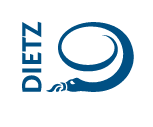This post is also available in:
![]() العربية (Arabic)
العربية (Arabic)
| Name of Publishing House | Verlag J.H.W. Dietz Nachf. |
|---|---|
| website | http://www.edition-assemblage.de/ |
| Communication | mareike.malzbender@dietz-verlag.de |
Since 1881 – Publisher JHW Dietz Nachf.
Since 1881 the publishing house JHW Dietz Nachf. Accompanies the German history. With his writers and books he has always shaped the social discourse: a history of publishing as a mirror of the political development of Germany from the Socialist Law in the Kaiserreich to the reunion of the two German states. The years of “non-existence” belong to this. After the National Socialists closed the publishing house shortly after the “Machtergreifung”, his name was deleted from the commercial register in 1934 and his property was confiscated in favor of the Prussian state.
Up to this time more than 600 titles have appeared, many of them today “classics” of the socialist and social-democratic theory and working movement, at the time, of course, current texts which aroused the debates and practices of the young social democrats and trade unions.
The founder and founder of the publishing house is Johann Heinrich Wilhelm Dietz, since 1875 head of the social-democratic “cooperative printing factory” in Hamburg. When the Socialists Act of 1878 threatened them to be closed, he bought them “in appearance”. A year later, however, Dietz is expelled from the Hansestadt and goes to Stuttgart. There he founded the publisher in 1881, meanwhile Reichstag deputy, who still bears his name. True to his motto “I lay out what suits me”, he quickly makes the company one of the most important political publishers in the German-speaking world. Dietz himself, who died in 1922, became the socialist publisher par excellence, or, as Kautsky said, the “cotta of social democracy.”
The first Dietz bestseller is the German translation of Marx’s “The Misery of Philosophy.” The “International Library” is founded on the fame of the House. The first volume is Edward B. Aveling’s essay on “The Darwinian theory,” Karl Kautsky writes about the “origin of Christianity”, August Bebel on “The Woman and Socialism” – today with more than 220,000 copies one of the best selling books of the publishing house. In Russian, Lenin first published his essay “What to do? – Burning questions of our movement. ” From 1883 onwards, the magazine “Die neue Zeit” became the leading organ of the workers’ movement under the leadership of Kautsky.
Rosa Luxemburg, Wilhelm Liebknecht, Friedrich Engels, Adolf Grimme, Eduard Bernstein, as well as writers such as Maxim Gorki and Joseph Roth, are among the Dietz authors. In short, until the Nazis liquidate him, JHW Dietz Nachf. Is scientifically, politically and culturally one of the intellectual centers for the progressive democratic forces of the imperial empire and the Weimar Republic.
After the war: The “new” publisher is the old one
In the middle of the 1950s, the Dietz heritage – or what is left of it – is absorbed by Schmidt-Küster GmbH, Berlin. However, it was not until 1961 that the deletion of the company JHW Dietz Nachf. In the GDR, the SED established another “Dietz-Verlag”, named after a Karl Dietz from Rudolstadt. Identity equality is intended to suggest a continuity with the social-democratic publishing house, which never existed. It is only after the reunification that the corporation, which today is part of the Rosa Luxemburg Foundation, has to trade under the name “Karl Dietz Verlag, Berlin” in order to avoid confusion with the “historical” publisher JHW Dietz Nachf., Whose seat is in Bonn .
JHW Dietz Nachf. Is acquired by the Friedrich Ebert Foundation in 1973 and headed by Heiner Lindner from 1978 to 2000. Through the program, which is closely connected with the theoretical and political debates of the time as in the prewar years, Lindner makes it clear that Dietz continues to be in a social-democratic tradition, but is not a party affair. As the current Dietz CEO Michael Dauderstädt points out, this also applies to the future. Heiner Lindner opens the program for new topics: ecology, women’s and peace movement, development policy and the history of national socialism. The high editions of Franz Nuschler’s standard work »Development Policy«, Ulrich Herbert’s biography »Best«,
The crisis in the book and publishing market reduced the publisher in 2000 to a core team by publisher Hilde Holtkamp, who has been the decisive conversation partner for the product ranges since 1973. The program remains committed to the Dietz tradition: Renowned series such as the »Archiv für Sozialgeschichte« and the »Berlin Edition« of Willy Brandt’s works or titles on time questions such as »And do you multiply? – Germany and the world population in the 21st century “by Claus D. Kernig or” Schöne Zeiten “by Rinderspacher / Herrmann-Stojanov, as well as the two Dietz journals» Neue Gesellschaft / Frankfurter Hefte «and» Internationale Politik und Gesellschaft « Aims of the publishing house: historical research, current political and social problem analysis and theory, as well as debates on important future questions.
The publishing house JHW Dietz Nachf. Does not provide “effective war materials for the proletarian liberation struggle” today and probably also in the coming decades, for which Karl Kautsky once praised JHW Dietz. But weapons against stupidity and ignorance, which can be useful to make our society peaceful, democratic, socially just and ecologically responsible – short, humane.
This post is also available in:
![]() العربية (Arabic)
العربية (Arabic)

 العربية
العربية  English
English 


